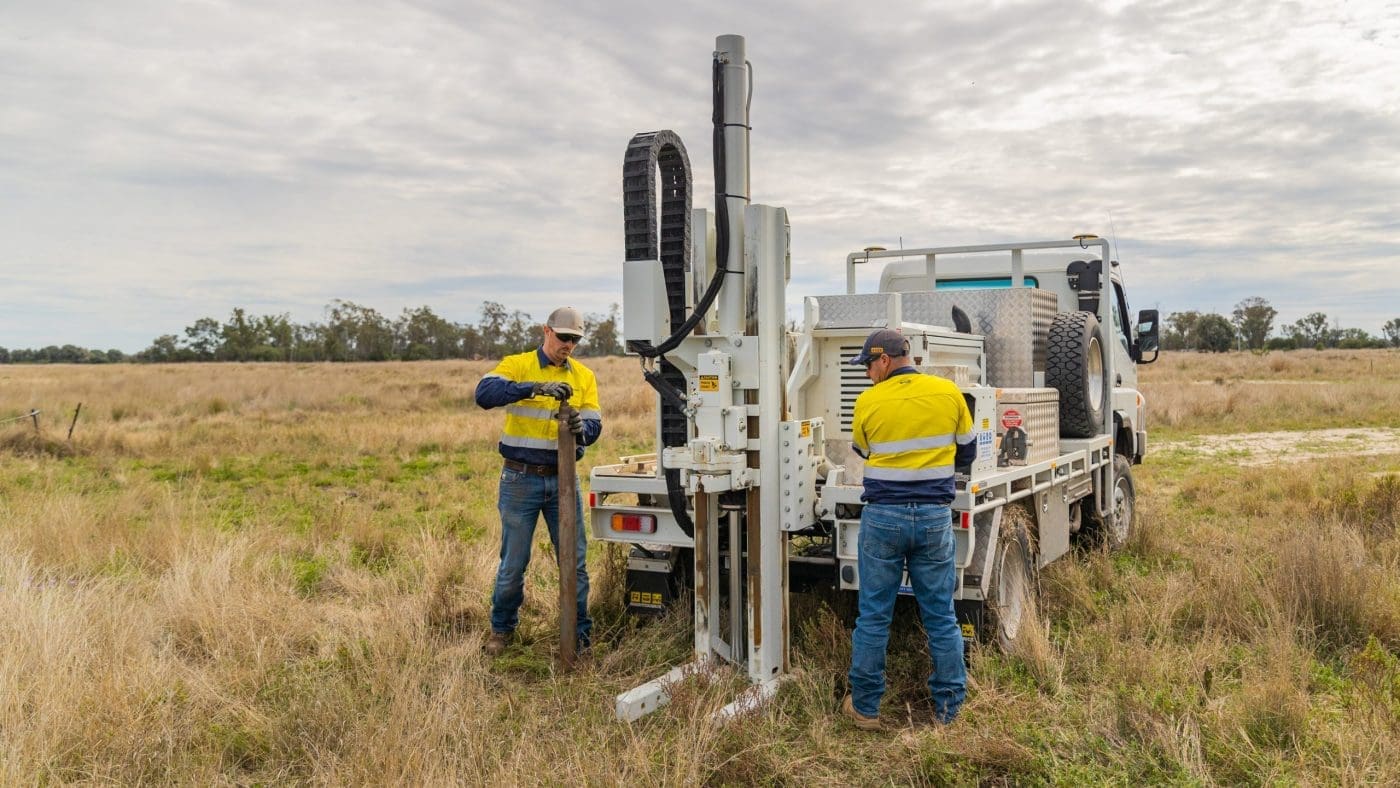Core samples being taken in a paddock to measure the amount of carbon in the soil. Photo: Carbon Link
TWO Queensland producers last week become the first to receive a large-scale allocation of soil carbon credits from the Federal Government, with a combined 151,312 Australian Carbon Credit Units issued.
The credits mean they were able to prove that their activities had resulted in an extra 151,312 tonnes of CO2 or the equivalent sequestered in the soil. Some of the projects have been audited five times by the Clean Energy Regulator.
Beef Central has been talking to both the producers involved to get an insight into their projects and why they decided to do them.
Andrew Lawrie from Moora Plains station, near Gogango west of Rockhampton, said the soil carbon project had made testing soil carbon commercially viable and helped them make developments to the property.
“As the soil carbon projects started to materialise, it appeared to be economically viable to benchmark our soil,” Mr Lawrie said.
“We were relatively comfortable with the way we were trickling along, it was fairly intensive and we had reached a point where we happy with how we were going.
“The soil carbon project gave us a push to take another step and ramp up the developments. I’m glad we have ramped it up again because we have doubled our density, we have gone from 10 to about 20 head per hectare.”
Before starting the soil carbon project, the Lawrie family had shifted from set-stocking, to resting paddocks and onto intensive time-controlled grazing.
With the soil carbon project requiring them to change from “business as usual”, they focused on increasing stocking density.
“We split some country up and we shifted some water points onto a new pipeline to give us more flow,” Mr Lawrie said.
“That was all aiming to be able to box more mobs together and increase our density.”
Mr Lawrie said the biggest capital outlay for the project was upgrading the waters to be able to deal with the increased stocking density.
“Some of our original watering systems were getting towards their capacity because in a lot of cases we will have more than 1000 head drinking from one water point,” he said.
“We have had to install pumps to boost flows.”
Rexton splits up paddocks and introduces pasture
The Archer family from Rexton, near Goondiwindi, were the other producers to be issued soil carbon credits last week.
The Archers have made a series of changes – introducing time-controlled grazing, introducing legumes and sub-tropical grasses.
“We put up electric fences and went from about 10 to 150 paddocks, in addition to that we had to introduce a water system to give us more water points” Tom Archer said.
Mr Archer said the management for the soil carbon project has also resulted in an increase in desirable species, productivity and carrying capacity.
“We have seen an increase in carrying capacity from 8 stock days per hectare per 100ml to more than 20 stock days /ha/100ml,” he said.
“We are in melon hole country and small falls of rain used to run-off and were less effective. Now with increased groundcover and deep-rooted perennial species, our water infiltration is much better as a result our recovery out of dry periods is much more rapid.”






HAVE YOUR SAY